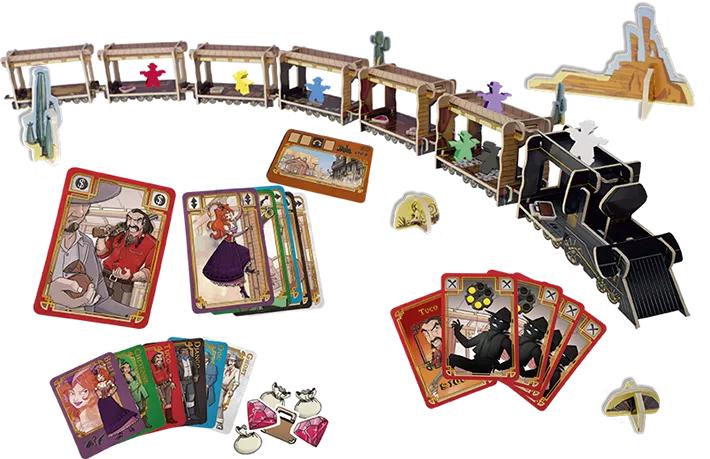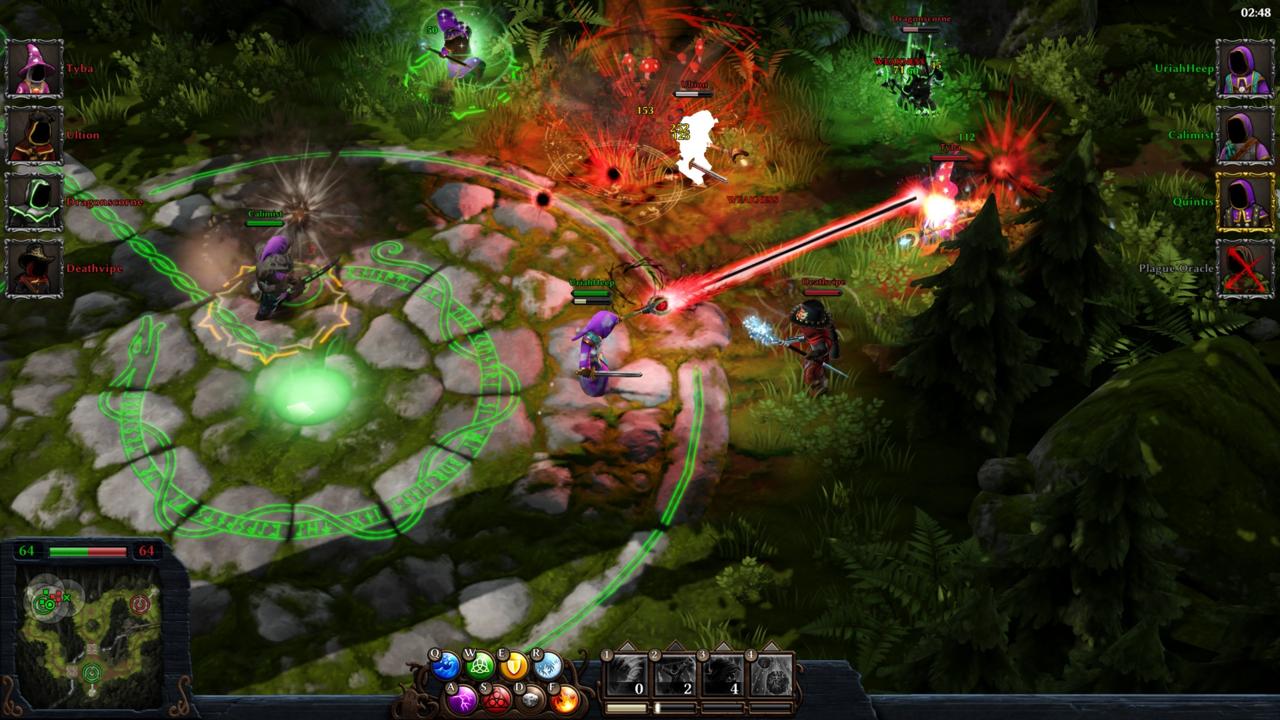How long do games live for?
Hi, it’s been a while since I last wrote anything but for some time I’ve been thinking about the past & future of games.
It’s a bit existential but I wonder if the game I’m playing now will be around for a long time, or if the game I’m playing will be long gone and forgotten.
I think there are a lot of factors to it and I think I have to establish what the notion of a game being alive really means.
When a game dies
“Every man has two deaths, when he is buried in the ground and the last time someone says his name. In some ways men can be immortal.” - Ernest Hemingway
If we are to adapt this quote to games, it might go something like this:
“Every game has two deaths, when it is no longer playable and the last time someone understands the rules.”
If no copies of a game exist, and no one remembers the rules, then we can say the game is truly dead. However one caveat is that whilst some games may die, they evolve into new forms over time and the influence of those original design ideas continue forward.
For example, Chess’s ancestor comes from a game called chaturaṅga which we don’t know the exact rules for. Chaturaṅga could be considered dead, but its descendants live on.
Chaturaṅga

The simplest games
Tag is one of the simplest games to design. You need no components, and the rules can be explained in seconds. I would wager that Tag in some form or another traces back to prehistory.
In being so simple, it’s carried by word-of-mouth from generation to generation, or it’s so simple that children simply reinvented it over and over again. In this way these games won’t die, and if they did, they would revive as long as there are still humans.
The oldest rulebook in existence
If we look beyond rules that people can keep in their minds, we need to write things down. The Royal Game of Ur is a board game that dates back to 2600-2400 BC. The rules were reconstructed from a Babylonian clay tablet. For a while, you could consider this game as being dead. But its rules lived on and it was possible for it live another life, 4000 years in the future.
The Royal Game of Ur with Irving Finkel, the man who deciphered the rules:

What makes up a game anyway?
So if you have the rules, what else do you need? If the game doesn’t require any components then you’re good to go, but most games require some sort of components.
Lets take Chess for example, a game of Chess needs:
- 2 players (human or computer)
- A square board of 64 squares of alternating colours
- 8x White Pawns, 8x Black Pawns
- 2x White Knights, 2x Black Knights
- 2x White Bishops, 2x Black Bishops
- 2x White Rooks, 2x Black Rooks
- White Queen and Black Queen
- White King and Black King
Now imagine a horrible apocalypse that wiped all mention of the idea of chess except for in peoples minds. It would be trivial for humanity to piece the game back together, as the components are pretty easy to remember and manufacture with basic tools.
The simpler the components, the better equipped a game could withstand the test of time, or some horrible apocalypse.
However this goes in the opposite direction as well. The more complex the components the worse equipped a game can last into the future.
Creating components and rules
Rules can be preserved as long we write stuff down. Whether that’s on clay tablets or not, rules are what give life to components to form a game.
Components on the other hand are a lot more complicated. Whilst a game such as Chess could be manufactured by hand, Colt Express might be more tricky. Modern board game manufacturing is really quite a marvel, and the more complex the games become, the harder it would be for games to be reconstructed in the future.
Colt Express components:

When the component required is a computer
As soon as a computer is involved in the process of playing a game, we move to the realm of video games. Here there are a multitude of factors that can cause a game to die in rapid ways. As new games come out and technology accelerates it’s very easy for games to be lost without people preserving them.
To give you a simple example, Adobe Flash, formerly known as Macromedia Flash and FutureSplash, was a multimedia software platform that allowed heaps of games to be created. I remember playing a lot of Flash games as a kid, even in the primary school computer lab, on chunky CRT monitors. The Flash Player is officially dead now as of 2020. Which effectively means all games that ran on Flash are dead too. Flash isn’t a technology that’s been around all that long either.
Luckily people are preserving games as part of the Flashpoint project.
Flash games back in the day:

The ephemeral rules of videogames
When we move to the realm of videogames the rules are often locked away. If you had the rules to a board game, you could make some bootleg pieces yourself, and still be able to play the game.
With videogames all you can do is reverse engineer the rules by playing them.
This is the nature of proprietary source code, which almost every single videogame has. Some developers have released their old games source code into the wild (like Doom), which lets the game live and evolve.
Beyond just the source code is also the original assets - the sound and textures and so on. Not only that but if the game ran on specific hardware, such as the NES, then you’d need to know how that entire machine worked as well.
On top of all this, games connect online with an ever changing network infrastructure. Many games have already died since the only way you could play was on a centralised server that a company ran. When that server gets turned off, the game is no longer playable.
I’ve seen multiple games over the years be born and die only within a few years due to this. It’s sad to see articles about the game being reviewed on release that are still up, whereas the game itself isn’t there anymore.
Magicka: Wizard Wars: A game I played that can only be played now via a commmunity ran server:

If a game was popular enough, then people may attempt to run their own servers but the life of a game in that form is tenuous at best.
The double-edged sword of technology
With more reliance on technology in the long-run we’re building a shakier foundation for preserving our games. Videogames in particular are incredibly volatile, and when games release digitally they become something that isn’t even represented in the real world.
Not only that but even the manufacturing of board games that you would consider safe from dying rely on modern printing techniques and computers.
However accelerating computing technology does have some preservation benefits, with emulation allowing us to simulate a game and the hardware it ran on.
Humanity and their games
This paints a grim picture of what may be lost in the future, long after we’re gone. I think it’s likely we will lose games and we will continue to make the same mistakes. But I also think there are people that care and that this is a worthy cause to care about.
We may wipe ourselves out one day, and if something else finds our remains, I believe they’ll be able to piece some fun games back together. If we don’t wipe ourselves out, I think there is a lot of work involved in remembering all of these games. More people are out there developing games than there are preserving them and we’re continually burying what came before us.
We can speculate about what games might become in the future, VR, AR and beyond. Full simulations of worlds down to the atom. Plugging in directly with brain to computer interfaces. Science fiction can paint an awesome future, but we may still enjoy sitting around a table playing board games 1000 years from now.
Games have been a part of humanity since the beginning, and I don’t think we’ll grow out of it any time soon.
History of games:
https://www.youtube.com/watch?v=OX1Gofwlofk
https://en.wikipedia.org/wiki/History_of_chess
https://en.wikipedia.org/wiki/History_of_games
https://en.wikipedia.org/wiki/History_of_sport
The Royal Game of Ur:
https://www.youtube.com/watch?v=WZskjLq040I
https://www.youtube.com/watch?v=wHjznvH54Cw
Board game manufacturing:
https://vimeo.com/45796947
Video game preservation
https://www.youtube.com/watch?v=ChqUlJdFYS8
https://en.wikipedia.org/wiki/Video_game_preservation
https://lostmediawiki.com/Category:Lost_video_games
Flash
https://en.wikipedia.org/wiki/Adobe_Flash
Doom
https://en.wikipedia.org/wiki/List_of_Doom_ports